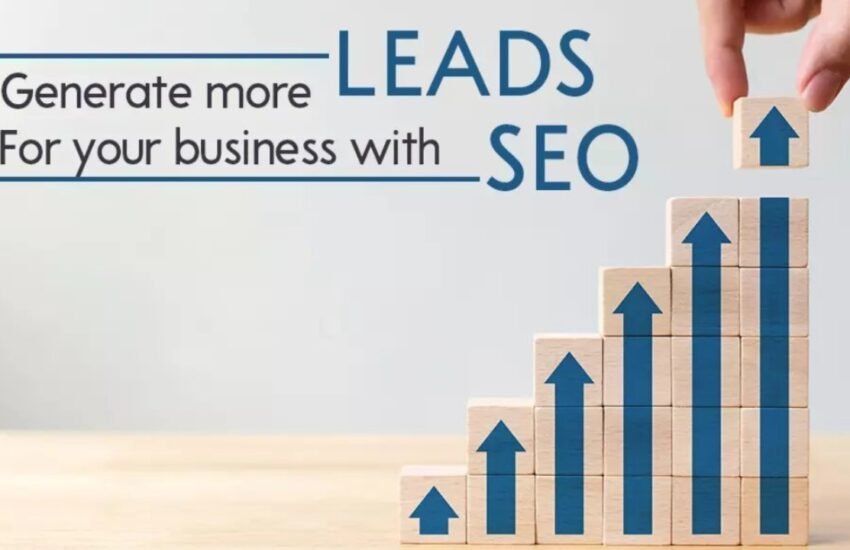In today’s digital-first landscape, businesses are increasingly turning to Search Engine Optimization (SEO) to generate leads and enhance visibility. SEO leads are prospects who find your business through organic search engine results, making them incredibly valuable in the marketing funnel. These leads often show a stronger intent to engage because they have actively sought out your products or services. By understanding how SEO leads work and developing strategies to capture them effectively, companies can drive sustainable growth.
In this blog, we will delve into the concept of SEO leads, their importance, and the steps you can take to generate and convert them. We will explore proven techniques, tools, and strategies, offering insights that will help elevate your SEO efforts. Whether you’re an experienced marketer or just beginning to tap into SEO’s potential, this comprehensive guide will serve as your roadmap to success.
What Are SEO Leads?
To fully grasp the value of SEO leads, it’s essential to first understand what they are. SEO leads are individuals who find your business through search engines like Google. These leads typically enter your sales funnel via search queries related to your offerings. For instance, if you run a digital marketing agency and someone types “best digital marketing agency near me” into Google, they may come across your website if your SEO strategy is solid.
Unlike traditional advertising, which often targets broad demographics, SEO leads are highly specific. These prospects are actively looking for solutions that match what your business offers, giving you an edge in conversion rates. Additionally, because SEO focuses on organic rankings, SEO leads tend to be less expensive to acquire compared to paid advertising methods like Google Ads or social media ads.
The Importance of SEO Leads in Your Business Strategy
SEO leads are often regarded as the lifeblood of inbound marketing strategies. The main reason behind this is the intent-driven nature of SEO. Prospects who arrive via organic search are generally further along in their buyer’s journey, often searching for answers to questions or solutions to problems that your product or service can solve.
According to Neil Patel, a renowned expert in digital marketing,
“SEO leads are not just about attracting traffic; it’s about attracting the right traffic.”
This quote emphasizes the importance of ensuring your SEO efforts are focused on targeting the most relevant and high-intent search terms. It’s not just about ranking higher in search results—it’s about being discovered by people who are already interested in what you offer.
By capturing these leads, businesses have the opportunity to nurture prospects with relevant content and offers that address their specific needs, increasing the likelihood of conversion. Moreover, SEO leads tend to have higher lifetime value, as they already know about your brand, product, or service before even reaching out.
How to Generate SEO Leads: A Comprehensive Strategy
Generating SEO leads requires a combination of strategies aimed at improving your visibility on search engines, providing valuable content, and optimizing user experience. Let’s break down a few key tactics to help you generate excellent SEO leads.
1. Keyword Research: The Foundation of SEO Leads
Keyword research is the backbone of any successful SEO strategy. By identifying the search terms your audience uses when looking for products or services like yours, you can create content that directly addresses those queries.
Tools like Google Keyword Planner, Ahrefs, or SEMrush can provide insights into the most relevant and high-volume keywords for your niche. When selecting keywords, prioritize long-tail keywords—these are more specific search phrases with lower competition but high intent. For instance, instead of just targeting “SEO,” aim for “best SEO strategies for small businesses.” These longer keywords often convert better since they target users with a clear purpose.
2. Content Creation: Engaging the Right Audience
Once you have a solid understanding of the keywords that matter most to your audience, it’s time to create high-quality content that answers their questions. High-quality content isn’t just well-written; it’s also informative, valuable, and tailored to the user’s intent.
Consider creating blog posts, guides, case studies, videos, and FAQs that provide solutions to common problems or questions your audience has. For example, if you’re in the software industry, you might write content on topics such as “How to Choose the Best CRM for Your Business” or “Top 5 Features to Look for in a Project Management Tool.” By positioning your content as the go-to resource, you’ll build trust with users and improve the chances of conversion.
3. On-Page Optimization: Ensuring Search Engine Visibility
On-page SEO involves optimizing individual web pages to rank higher in search results and attract more relevant traffic. This includes ensuring that your content contains the right keywords, but it also means optimizing the technical aspects of your website.
Key elements of on-page SEO include:
- Meta titles and descriptions: Make sure your pages have compelling titles and descriptions that incorporate your target keywords and encourage clicks.
- Header tags: Organize content using header tags (H1, H2, H3) to improve readability and help search engines understand the structure of your content.
- Internal linking: Link to other relevant pages on your site to keep users engaged and improve your site’s authority.
- Mobile optimization: Ensure your website is fully optimized for mobile users, as a significant amount of search traffic comes from mobile devices.
4. Backlink Building: Boosting Your Authority
Backlinks—links from other websites to your content—are a crucial ranking factor in SEO. The more high-quality inbound links your site has, the more authoritative it appears to search engines, improving your chances of ranking higher for competitive keywords.
To build backlinks, consider guest blogging, reaching out to influencers or industry publications, and creating shareable content such as infographics or comprehensive resource guides. Quality is more important than quantity, so focus on acquiring backlinks from authoritative and relevant websites in your industry.
Converting SEO Leads into Customers: The Nurturing Process
Attracting SEO leads is only half the battle. The next essential step is converting them into paying customers. Here’s how you can effectively nurture your SEO leads to maximize conversions:
1. Lead Magnets: Offering Value in Exchange for Information
One effective way to convert SEO leads is by offering lead magnets—valuable resources that visitors can access in exchange for their contact details. This could include an e-book, whitepaper, webinar, or a free trial of your product. The goal is to offer something valuable that incentivizes users to provide their email address, allowing you to nurture the relationship further.
2. Email Marketing: Staying Top of Mind
Once you’ve captured a lead’s information, email marketing becomes an essential tool for nurturing that lead through the sales funnel. Use personalized email sequences to engage prospects with relevant content, product updates, and exclusive offers. A well-crafted email campaign helps establish trust and keeps your business top of mind, increasing the chances of conversion.
3. Retargeting Ads: Re-engaging Interested Leads
Another tactic to convert SEO leads is through retargeting ads. Retargeting allows you to show ads to users who have previously visited your website but didn’t convert. By serving relevant ads based on their past behavior, you can encourage prospects to return to your site and complete the desired action, whether it’s making a purchase or filling out a contact form.
Conclusion: Harnessing the Full Potential of SEO Leads
SEO leads are an invaluable asset for businesses looking to grow organically and sustainably. By optimizing your website for search engines, creating valuable content, and nurturing leads through personalized communication, you can effectively attract and convert high-intent prospects into loyal customers.
As digital marketing continues to evolve, SEO will remain a powerful tool for driving long-term growth. So, whether you’re an experienced marketer or just starting with SEO, the strategies outlined in this blog will help you get the most out of your SEO efforts and ultimately generate high-quality leads that fuel your business’s success.
By focusing on high-quality content, effective keyword strategies, and lead nurturing, you can establish a strong pipeline of SEO leads that bring value to your business and deliver measurable results. Stay committed to your SEO strategy, and the leads will follow.
you may also read
White Label Local SEO: The Ultimate Digital Marketing Secret



